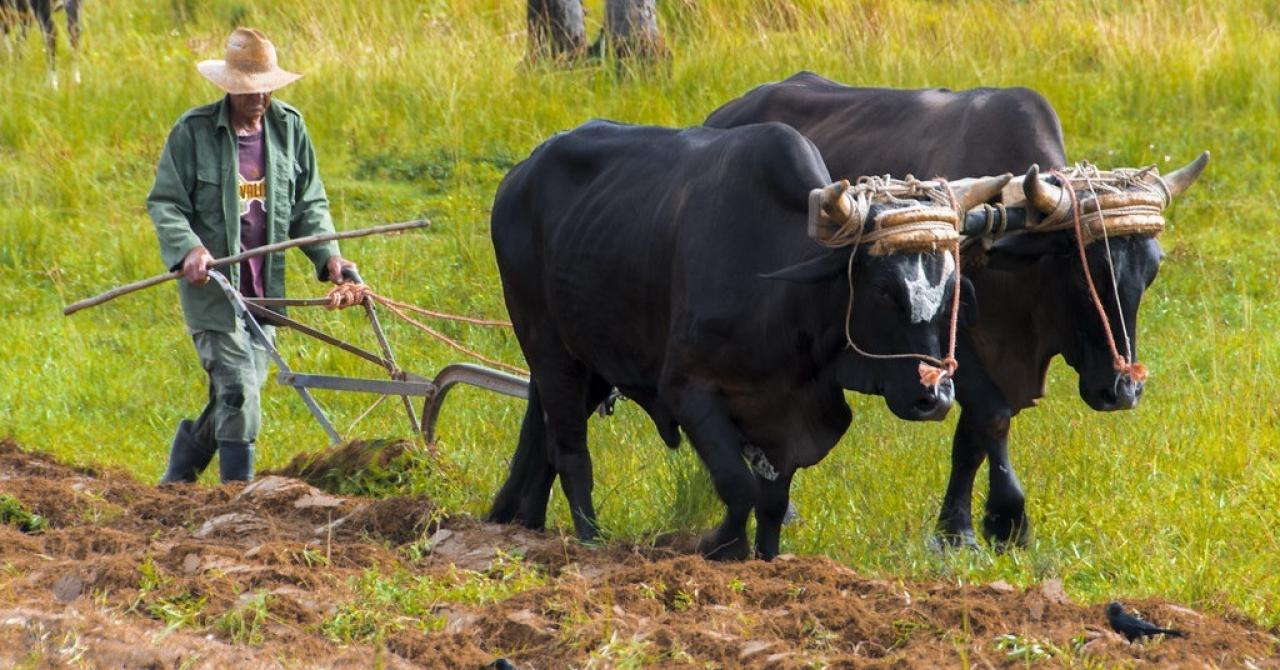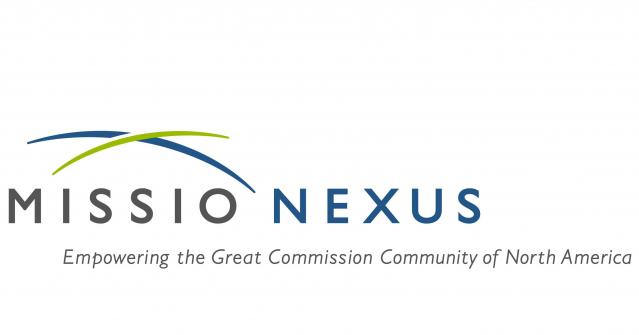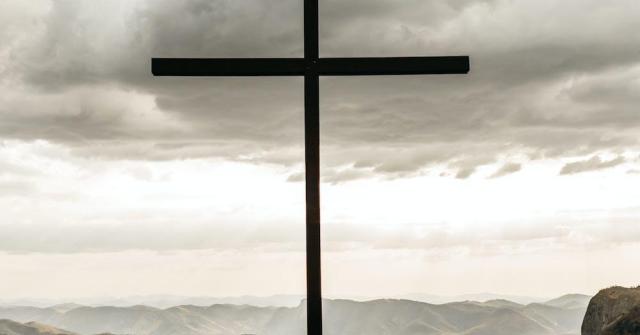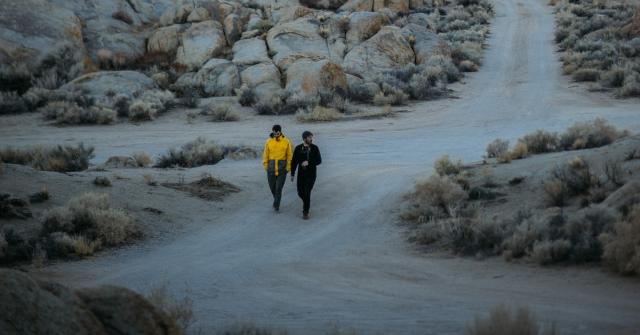
Event Recap: "Consecrated" with Darrell Johnson Take up my yoke and you'll find rest.
On November 14th 2019 80+ pastors and leaders gathered to be inspired by Darrell Johnson on being “Consecrated”. This gathering was in preparation for Missions Fest Vancouver 2020. The conference theme, “Altar Vision,” is an invitation to explore what it means to live a surrendered or consecrated life to Jesus.
Darrell beautifully unpacked Matthew 11:25-30 and Ephesians 3:14-21. The first part of Darrell’s exposition focused on Matthew, where he shared about the yoke that Jesus’ himself wore and is inviting us to wear. Darrell furthered his exposition on consecration where he argued that apostle Paul’s great preaching was likely due to his great praying. My heart leaped with joy as I heard the Gospel speaking life for us all through Darrell. Below the notes from the first part.
At that time Jesus said, “I praise you, Father, Lord of heaven and earth, because you have hidden these things from the wise and learned and revealed them to little children. Yes, Father, for this is what you were pleased to do.
“All things have been committed to me by my Father. No one knows the Son except the Father, and no one knows the Father except the Son and those to whom the Son chooses to reveal him.
“Come to me, all you who are weary and burdened, and I will give you rest. Take my yoke upon you and learn from me, for I am gentle and humble in heart, and you will find rest for your souls. For my yoke is easy and my burden is light.”
Darrell shared 7 essentials in the passage above:
1. The essential verb is “come”. Jesus does say go, serve, and repent, and heal and do justice, but his favorite word is come. It expresses his posture towards the whole world. Yet, the common thinking before coming to God is: Shouldn’t we get our act together first? Jesus would answer No, just come!.
2. The essential noun of discipleship in ministry is “me.” He doesn’t say come to spirituality, to ministry or mission. He doesn’t say come to the divine one. The rabies called people to the Torah, the philosophers called people to the grand idea. Jesus calls people to himself. How easily do we lose touch with the noun: “me”. Richard Halverson, chaplain of the U.S. Senate said: "In the beginning the church was a fellowship of men and women centering on the living Christ. Then the church moved to Greece, where it became a philosophy. Then it moved to Rome, where it became an institution. Next, it moved to Europe, where it became a culture. And, finally, it moved to America, where it became an enterprise.” Yes, Christianity is a philosophy, the most coherent one! Yes, it is an institution—the most life giving and healing one. It Is an enterprise, the grandest enterprise of renewing the whole created order. But most importantly Christianity is to “come to me”—to come to Jesus. The main thing in discipleship is “me:” Jesus.
3. The people Jesus likes to call into discipleship in ministry are: “all who are weary,” weary from the suffering in the world, from injustice and pain, from talk of terrorism and of impeachment. Come to me all who are heavy laden, or over burden, who are in over your heads. Come to me all who have overburdened themselves saying so many “Yeses,” trying to accomplish more than you can.
4. The essential promise of discipleship in ministry is “rest.” Come to me and I will rest you. Jesus rests us! That explains why we can take a day off or a vacation and not rest because rest is in Him: Jesus. In Genesis, we read that God rested from all of his works. What does that mean? If God would take a break the universe would collapse. God enters into the reason for which he created. There was no evening and no morning in day 7! Because day 7 has no end. Day 7 is why God made the world. God rested means that God entered the reason why God even bothered with creation. Come to me and I will bring you into the wholeness for which you were originally created. How does he rest our souls?
5. The essential symbol of discipleship in ministry is the “yoke.” Take my yoke upon you. Wait! A yoke will give us rest? The yoke is a symbol of hard work. You put a yoke on an animal to make it work. Didn’t Isaiah say that God would break the yoke of oppression? When we think of rest we may imagine a recliner, a Lay-Z-boy sofa, or a cruise on the Greek islands. But Jesus says “take up my yoke and your soul, your inner being will find rest.’ What is Jesus getting at? We are weary because we are wearing the wrong yoke. Switch yokes! The question is not” will I wear a yoke? The question is: “whose yoke will I wear?” Everybody wears a yoke. There are no yokeless human beings. The question is never: “will I be a disciple?”. The question is” whose disciple will I be?” Even Oprah Winfrey or Donald Trump are disciples of someone else. From all the spirits that I am pressured, whose will I yield to? Jesus says: “my yoke is easy and my burden is light”? I [Darrell] would say to Jesus: “easy? Light?” The question is: What is Jesus’ yoke? What is his burden?
6. The essential blessing of discipleship in ministry is “My yoke”. It is a yoke that Jesus himself wears. The yoke he calls us to wear is something that he himself wears. It turns out that Jesus has worn this yoke from all eternity. He wore it before he became flesh and blood. He wore it all his earthly life. He wears it now in his ascension. So, what is it? His new law?Is it the new Torah as we have it in the sermon of the mount? Is that what Jesus is saying in Matthew? Then what is his yoke? The yoke that refreshes, that Jesus himself wears is his relationship with his Father. In the Matthew text, Jesus praises his Father, and then he expresses his trust and the mystery of the living God. It is this relationship of intimacy, of knowing, and revealing God. Jesus sounds his call in the context of his praying: “Oh Father Lord of heaving, I praise you Father that you didn’t not reveal this to wise, but to babes.” Jesus call emerges of declaring the mystery of God’s being. And then he turns to us and says: “come to me. Take my yoke upon you.” The picture of this text is that Jesus calls us to himself. He is holding something he says: take it. It will rest you. Jesus is praying, he is worshiping. He is in a conversation with the whom who he calls Father, and from that place of intimacy with the Father he calls us: “come to me.” Do you see my yoke? My yoke is my relationship with the Father. I am calling you to this relationship with the father. We can’t understand Jesus apart from his passion for the Father. Jesus is trusting his father. Jesus is in a context where cities are rejecting the gospel of the Kingdom. People were accusing him of being in cahoots with the devil, that he lost his mind. What is Jesus’ burden? To please the Father. Jesus lives his whole career for an audience of One. The needs didn’t set the agenda of his life. Yes, he cares for people, but people’s requests do not determine the rhythms of his daily existence. He doesn’t look for the blessings of the high chiefs, of the bishops, he feels no need to please Herod or Pilate. He is not driven to please his disciples, or brothers or sisters, not driven to please even his mother.
Take my yoke upon you. Easy and light not just for Jesus, but for us too. This is the reason why we were created and redeemed. Chrestos (Greek word connected to Christ) means “kind to people.” The yoke of Christ is Chrestos. It is well fitting for me. At the center of the universe there is a relationship. Out of that relationship we were made and for that relationship we were made. The triune God was an infinitely happy God. He said: this is too good to keep it for ourselves. Let’s make others so that they can enjoy what we have. When we walked away from that, Jesus came all the way down to reach us. He calls us back. His essential blessing of discipleship in ministry is “my yoke”, my relationship with the Father.
In “Trinitarian Perspectives: Toward Doctrinal Agreement” Thomas F. Torrance says: "The Trinity is the fundamental grammar of our knowledge of God. The doctrine of the Trinity gives the expression to the fact that God has opened himself so that God draws near to us. In such a way to draw us near to himself. God draws us within the circle of the knowing of himself."
Jesus wanted us to be in Him, in the Father. Come into my relationship with and in the Father and through the Holy Spirit. In The Devine Conspiracy, Dallas Willard beautifully wrote: “It is being included in the eternal life of God that heals all wounds and allows us to stop demanding satisfaction. What really matters, of a personal nature, once it is clear that you are included? You have been chosen. God chooses you. This is the message of the kingdom.”
Jesus’ yoke is the only yoke that fits the human species well. It is infinitely lighter than trying to please your parishioners, your earthly father, or your clients. What pleases the Father is that we throw ourselves to the Son. What pleases the Father is that we welcome the Spirit.
7. The essential way of discipleship in ministry is to “learn”. “Learn from me” said Jesus, meaning watch me live out this intimacy with the Father. Let me show you my father. I [Darrell] hear Jesus saying: you know what your problem is Darrell, you don’t know the Father the way I do. Let me show you how good and faithful the Father is. He is good, even when the preaching of the kingdom is rejected in the secular culture.
So, to live a surrendered life to Christ is to accept his invitation to go to Him and to take on His easy yoke that will help us rest. It is to come to a relationship with Jesus’ Father and our Father. It is to give up any other yokes that feel difficult and heavy. The yokes of power, pleasure, honour or wealth are heavy and difficult. They keep us moving in life draining rhythms. May God’s Spirit enable us to hear and to say “Yes” to the call of Jesus today.
The second part of Darrell’s exposition will be published soon. Also, you can download for free the audio of his full expositions at the Mission Central store:
Mission Central and Missions Fest Vancouver thank all the partners who made this gathering possible.
Thank you to all our partners:
- Alpha Canada for sponsoring a delicious lunch. We were inspired by: "Life Shared" a great resource to help mobilize Christian in Canada to share life, faithe and Jesus: Watch promo video.
- Aaron White and 24/7 Prayer for leading reflection time, and to
- The worship team: Sandeep Jadhav from New Life Community Church, Joshua Koh from Fraser Lands Church, and Vania Levans from Marineview.






